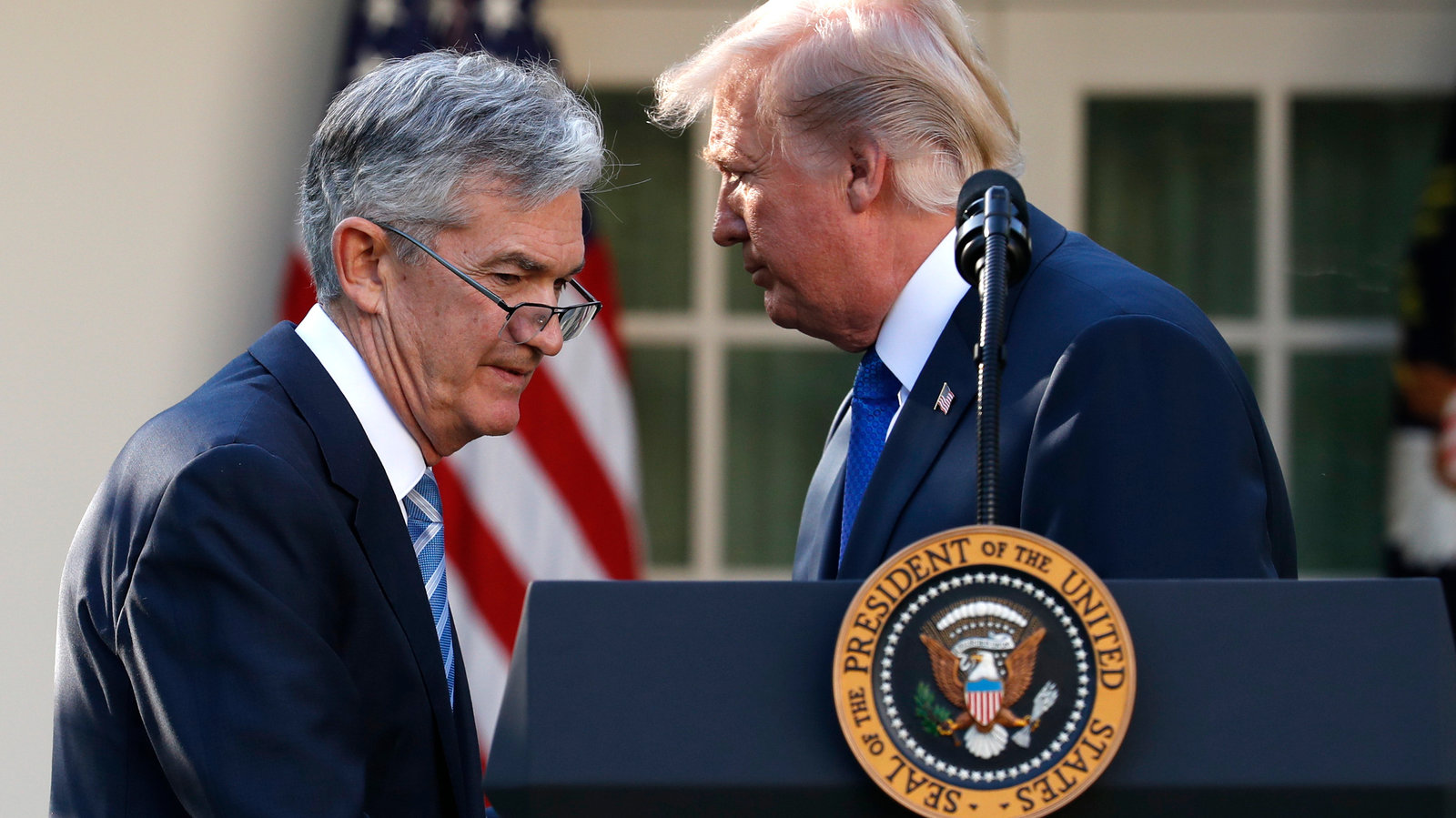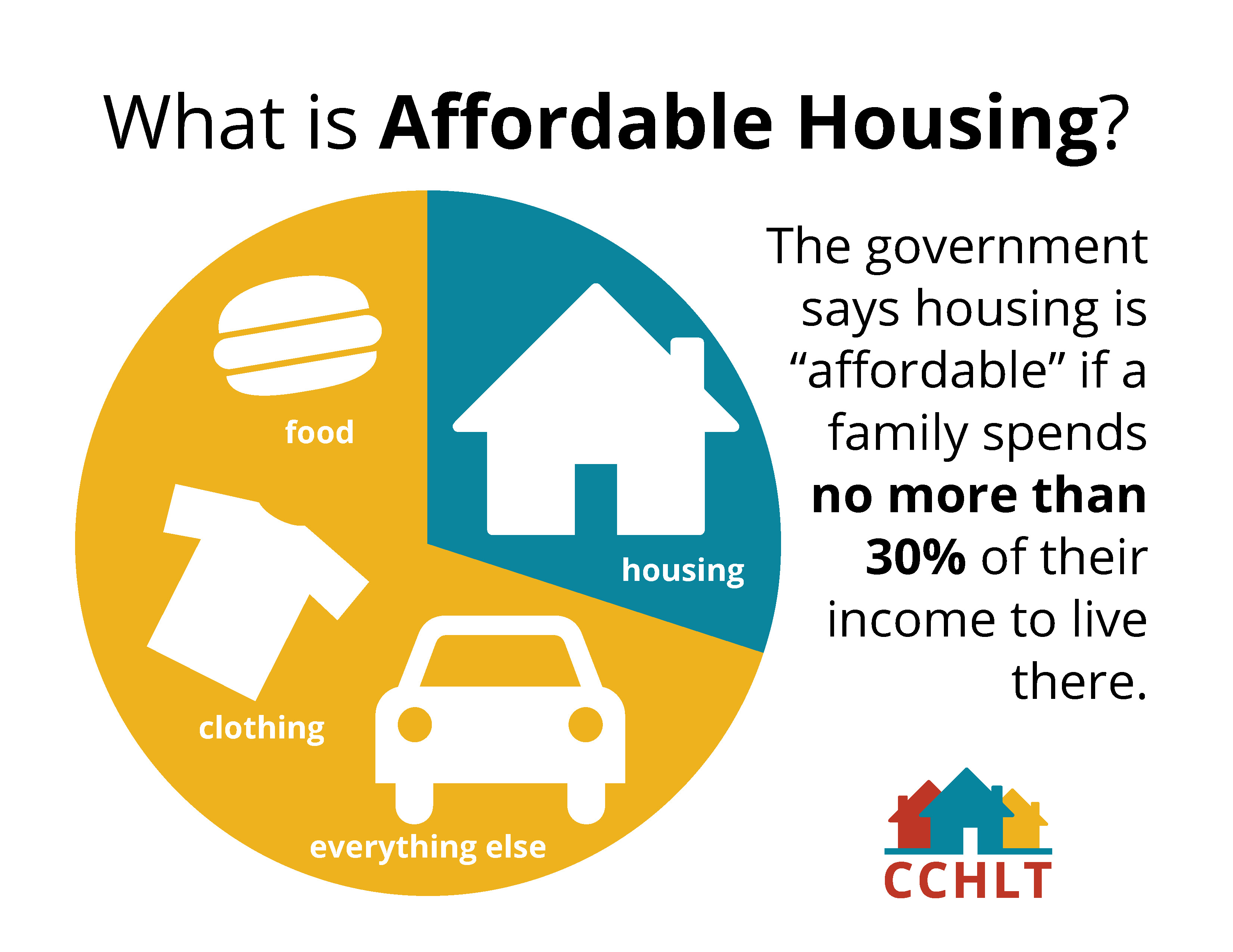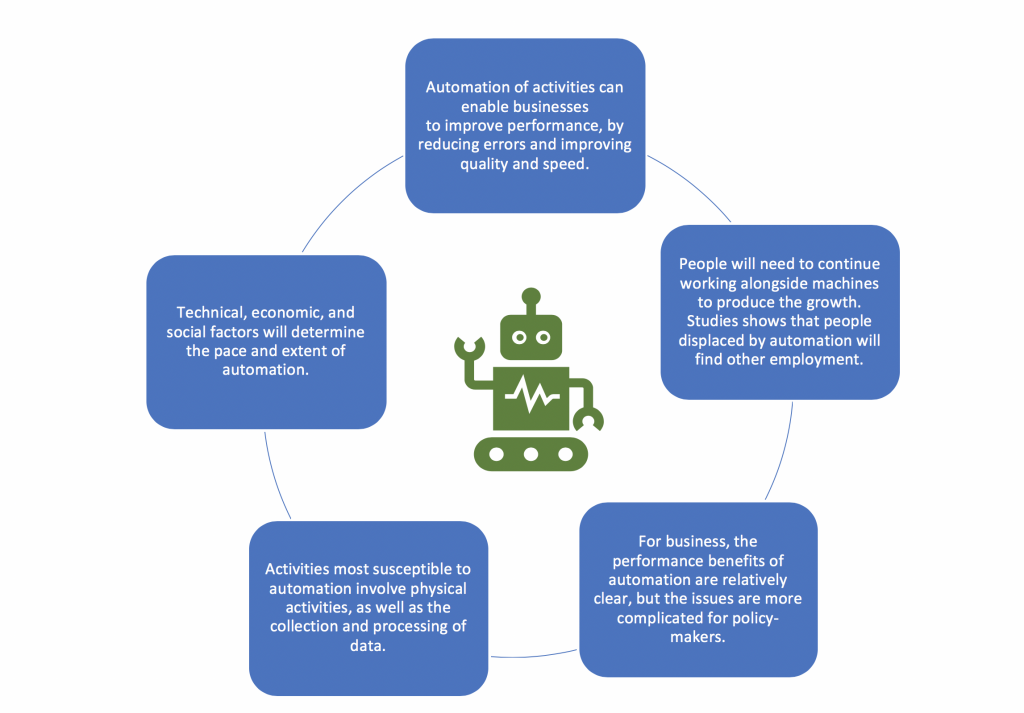The potential for Trump’s Fed Chairman removal has become a focal point in the discussion about the future of the U.S. economy and Federal Reserve independence. President Trump’s tumultuous relationship with Jerome Powell, the current Chairman, has raised eyebrows among investors and policymakers alike. Amid concerns over Trump’s economic policies, including trade tariffs, the President has repeatedly criticized Powell for not adopting a more aggressive monetary stance, which he believes is necessary to stimulate economic growth. The market reaction to Fed decisions has become increasingly sensitive, as removing Powell could significantly undermine the revered independence of the Federal Reserve. As the debate continues, the implications of such a move could have profound effects on monetary policy influence and market stability in the long run.
The discussion surrounding the possibility of ousting the current Federal Reserve Chairman is gaining traction as tensions rise between President Trump and Jerome Powell. This dynamic highlights the broader implications for central bank operations and its independence from political influence. Many experts caution that the ramifications of removing Powell could destabilize financial markets, shaking investors’ confidence in U.S. monetary policy. The controversy taps into a larger narrative about the delicate balance between governmental oversight and the autonomous authority of the Federal Reserve, emphasizing the need to observe the market’s response to such potential political maneuvers. This ongoing debate underscores the fundamental role of leadership in shaping economic policies and the significant consequences of those decisions on the nation’s financial landscape.
The Legal Implications of Trump Firing the Fed Chairman
The prospect of President Trump firing Federal Reserve Chairman Jerome Powell raises significant legal questions regarding the authority of the executive branch over independent agencies. According to the Federal Reserve Act, governors can be removed for cause, yet it remains ambiguous whether this provision extends to the chair’s role. Legal scholars debate whether the president has the constitutional authority to oust the Fed chairman without substantial legal backing. This ambiguity complicates the relationship between monetary policy and executive power, particularly in a politically charged environment.
Legal interpretations suggest that any move by President Trump to remove Powell could be viewed as an infringement on the Federal Reserve’s independence. This independence has been a pillar of U.S. monetary policy since its inception, designed to shield it from political influence. If the President attempted to enforce such a removal, it could lead to a significant judicial battle, scrutinized by the Supreme Court. The outcomes of past cases could influence this, particularly the 2020 Seila Law decision, which challenged the independence of the Consumer Finance Protection Bureau, thereby eroding the historical protections surrounding such agencies.
How Market Reaction Influences Federal Reserve Independence
Market reaction is a critical factor influencing the Federal Reserve’s operational integrity. If President Trump proceeded with plans to remove Powell, markets could react unfavorably if they perceive such a move as a threat to the Fed’s independence. Historical data indicate that even speculation surrounding Trump’s intentions has caused volatility, underscoring the potential risks associated with perceived instability in federal monetary policy. Investors often rely on the Fed’s commitment to independent monetary decision-making, and any doubts could lead to significant shifts in market sentiment.
The immediate market effects of Powell’s potential removal could lead to increased yields on Treasury rates, illustrating a fear of inflation and higher borrowing costs, mirroring concerns about the future direction of monetary policy. In turn, such changes could hamper the economic growth that Trump’s administration likely aims to stimulate. This highlights how market perceptions can serve as a natural check against political overreach concerning Federal Reserve leadership, reinforcing the idea that maintaining both independence and credibility is essential for fostering a stable economic environment.
The Impact of Trump’s Economic Policies on Monetary Policy
President Trump’s economic policies have added complexity to the Federal Reserve’s role, particularly with his push for looser monetary policy amid trade tensions. The Fed, traditionally focused on controlling inflation and stabilizing economic growth, is caught in a web of conflicting pressures from fiscal policy and global market dynamics. Higher tariffs and trade restrictions have the potential to induce inflationary pressures, which would require the Fed to adopt a more restrictive monetary stance, contrary to Trump’s desires for lower interest rates to stimulate immediate growth.
This relationship highlights the precarious balance that the Federal Reserve must strike between the executive branch’s economic goals and the central bank’s long-term inflation targets. While Trump’s administration may advocate for aggressive rate cuts to spur short-term growth, the Fed’s commitment to maintaining price stability and its independent mandate could lead to friction. This tension reflects the broader debate around monetary policy influence in the context of executive financial maneuvers and emphasizes the essential function of Federal Reserve autonomy in safeguarding against politically influenced economic management.
Jerome Powell’s Tenure and Market Confidence
Jerome Powell’s term as Federal Reserve Chairman is marked by his cautious approach to monetary policy, focusing on data-driven decisions. This has fostered a degree of market confidence, particularly among investors wary of abrupt policy changes. Powell’s ability to navigate complex economic indicators has reinforced the Fed’s credibility, essential for maintaining trust in U.S. financial markets. Analysts argue that any sudden removal of Powell could disrupt this fragile equilibrium and may lead to increased market volatility, prompting investors to question the future direction of U.S. monetary policy.
Moreover, Powell’s leadership style emphasizes collaboration and consensus-building within the Federal Reserve, contrasting sharply with the potentially disruptive fallout of a political firing. Investors understand that continuity in leadership typically signals stability, crucial for long-term planning and investment decisions. Therefore, should Trump move to dismiss Powell without a suitable successor, it may not only jeopardize investor confidence but also undermine the carefully cultivated image of the Federal Reserve as a stable institution, independent of political pressures.
The Role of the Federal Reserve in Economic Recovery
The Federal Reserve plays a pivotal role in regulating the U.S. economy, particularly during recovery phases. The central bank’s monetary policy decisions can significantly influence overall economic growth by manipulating interest rates and regulating the money supply. During times of economic stress, such as those resulting from trade tensions or market downturns, the Fed’s ability to respond effectively is critical to restoring confidence in the economy and stimulating growth. As such, retaining Powell as chair could be seen as a stabilizing factor amidst fluctuating economic conditions.
In contrast, should President Trump’s administration attempt to impose a more aggressive monetary policy by reshaping the Fed’s leadership, it risks undermining the institution’s long-term goals of fostering a stable economic environment. Consistent and predictable monetary policy is essential for encouraging investment and economic activities, particularly in times of uncertainty. Thus, a cohesive approach—led by experienced leadership—remains vital for effective economic recovery and is essential in cultivating sustainable growth.
Potential Successors to Jerome Powell and Market Perception
In a scenario where Trump decides to move forward with firing Jerome Powell, the identity of his potential successor becomes crucial. Markets tend to react not just to the act of removal but to the implications of such an action—interpreted as a shift towards a more accommodative monetary policy. A successor seen as willing to engage in aggressive rate cuts may embolden market speculation, leading to immediate short-term gains; however, such an outlook could backfire if inflation begins to rise as a result of expansive policy.
Market volatility hinges on the perception of the new chairman’s ability to maintain the Fed’s credibility. Investors might fear that any replacement could prioritize political goals over economic stability, thus jeopardizing the Fed’s independence and the long-term health of the economy. Ultimately, the discussions about potential successors highlight the ongoing tension between market stability, economic policy direction, and the crucial independence of the Federal Reserve amid external pressures from the executive branch.
The Supreme Court’s Stance on Executive Removal Powers
The prospect of President Trump attempting to remove Jerome Powell could lead to significant legal ramifications, particularly in the context of the Supreme Court’s interpretation of executive powers. As observed in recent rulings, there has been a gradual expansion of presidential authority over independent agencies, challenging the protections afforded under the ‘for cause’ provisions. This evolving legal landscape represents a pivotal moment for the Federal Reserve, as it balances its operational integrity against the potential for judicial scrutiny regarding its governance.
Should the Supreme Court decide to uphold a broad interpretation of presidential authority, it could set a precedent that fundamentally alters the relationship between the executive branch and economic policy entities such as the Federal Reserve. This scenario could usher in a new era of increased political influence over monetary policy, fundamentally changing how the Federal Reserve operates and how it is perceived globally. Legal experts continue to debate the impact that potential Supreme Court decisions could have on the future of the Fed and its standing as an independent monetary authority.
Understanding the Federal Reserve’s Independence
The Federal Reserve’s independence is seen as crucial for effective monetary policy. This independence allows the Fed to make decisions based on economic data rather than political pressures, thereby promoting long-term economic stability and growth. If President Trump were to remove Jerome Powell, it could signal a departure from this principle, leading to fears of an unduly influenced Fed unable to act freely in the best interests of the economy. Observers argue that such a move could diminish confidence in the Fed’s ability to manage inflation and implement sound monetary policy.
Moreover, the concept of Fed independence is rooted in the understanding that central banks should prioritize economic stability over political expediency. Historical precedent shows that when political motivations cloud monetary decisions, the consequences can be detrimental, often resulting in hyperinflation or financial instability. Therefore, safeguarding the independence of the Federal Reserve becomes paramount, as it ensures that monetary policy is enacted with a long-term perspective rather than succumbing to short-term political pressures.
Frequently Asked Questions
Can Trump remove Fed Chairman Jerome Powell?
While President Trump has expressed discontent with Fed Chairman Jerome Powell, legally removing Powell from his position is complex. The Federal Reserve Act allows for the removal of governors for cause, but it’s unclear if this applies to the chair position. The Supreme Court’s interpretation of executive authority and the traditional independence of the Federal Reserve further complicate the situation.
What impact would Trump’s removal of the Fed Chairman have on Federal Reserve independence?
Removing Fed Chairman Jerome Powell would likely undermine the Federal Reserve’s independence, a critical aspect of its ability to implement monetary policy without political pressure. This potential interference could lead to heightened market uncertainty and a loss of credibility in the Fed’s commitment to controlling inflation.
How might the markets react to Trump attempting to fire Powell?
If President Trump were to attempt to fire Fed Chairman Powell, market reactions could be severe. Investors might anticipate a shift towards more aggressive monetary policies, possibly triggering a sell-off in stocks and rising long-term interest rates due to fears of inflation, ultimately hurting the economy.
What does Trump’s stance on Powell reveal about his economic policies?
Trump’s criticism of Powell indicates his preference for more aggressive monetary policies aligned with his economic goals. By suggesting the removal of Powell, Trump highlights his dissatisfaction with the current monetary policy, which he believes hinders his objectives for economic growth.
Could Trump legally justify the removal of the Fed Chair under current law?
The legality of Trump removing Fed Chairman Jerome Powell is questionable. Although the Federal Reserve Act stipulates governors can be removed for cause, it does not explicitly provide similar grounds for the chair. Recent Supreme Court decisions may impact future interpretations on this authority, but currently, the legal justifications remain unclear.
What are the long-term implications of Trump’s removal of Powell on U.S. monetary policy?
If Trump succeeded in removing Powell, it could lead to long-term consequences for U.S. monetary policy, including a potential shift towards a more politically influenced Federal Reserve. This change could alter the Fed’s ability to effectively manage inflation and maintain economic stability, impacting all financial markets.
Has Trump expressed a desire to replace Powell, and what does it mean for the Fed’s future?
President Trump has hinted at a desire to replace Jerome Powell, suggesting a more accommodative monetary policy might be desired. Such intentions raise concerns over the Federal Reserve’s future independence and its ability to execute monetary policy free from political influence.
| Key Points |
|---|
| President Trump considered removing Jerome Powell from his role as Fed Chairman, causing market concerns. |
| Markets reacted negatively to Trump’s potential removal of Powell, fearing instability in Fed independence. |
| Legal debates continue regarding the president’s power to remove the Fed Chair based on the Federal Reserve Act. |
| Supreme Court’s future decisions may further clarify or question the president’s removal authority over independent agencies. |
| Investment decisions and market confidence might be jeopardized by a potential shift in monetary policy post-removal. |
Summary
Trump Fed Chairman removal is a significant topic within U.S. financial policy that raises questions about presidential authority and the independence of the Federal Reserve. The dynamics surrounding President Trump’s consideration of ousting Jerome Powell have stirred concerns about market stability and the potential impact on monetary policy. As debates regarding the legal implications unfold, the reaction from financial markets highlights the delicate balance between political influence and economic integrity.




